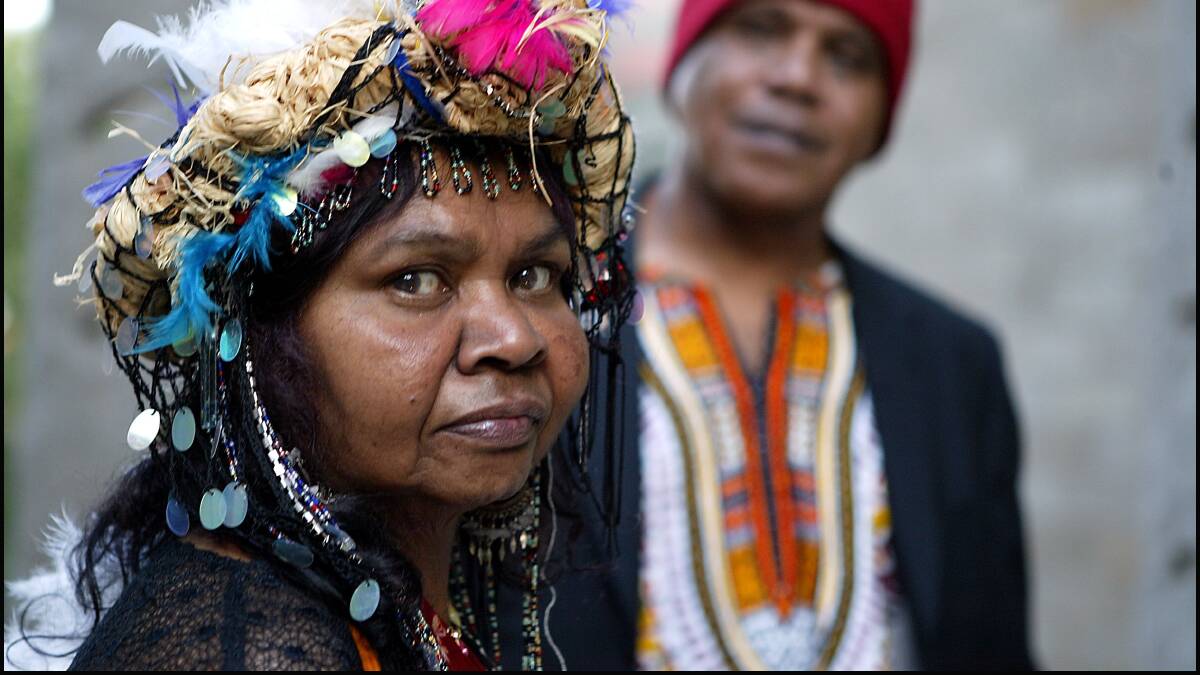Wash My Soul in the River's Flow. PG, 89 minutes. Four stars
Subscribe now for unlimited access.
or signup to continue reading
As the mighty Murray carves a channel through limestone cliffs and winds across the river flats of the Coorong on its way to the sea, it is easy to imagine the importance of the lands to someone who grew up there. Or to someone visiting.
It was country for the singer-songwriter Ruby Hunter, where she spent the first eight years of her life before she and her siblings were forcibly removed and sent to foster care in 1963.
When she went back to see it, it was on a visit with her partner, fellow singer-songwriter Archie Roach who wrote the music to Rolf de Heer's remarkable film The Tracker. Roach felt that being in country with his wife had a profound effect on him too, restoring his creativity.
Watching the river flow is integral to this poignant and inspiring, at times ethereal, documentary.
It is a blend of archival footage with its principal characters and of timeless images of the majestic Murray River with its pelicans, black swans, stately paperbarks and the other life it supports. The Coorong is captured with superb cinematography.

Wash My Soul in the River's Flow is written and directed by Philippa Bateman.
It is a cinematic recreation of the opening night of Kura Tungar - Songs from the River concert, performed with pianist Paul Grabowski and his contemporary music ensemble, the Australian Art Orchestra, in Melbourne in 2004.
The film is a glorious and intimate experience, telling the story of the Indigenous artists' lives together song by song, including the song that gives the film its title.
Hunter and Roach met when she was 16 and he was 17, two homeless teenagers taking shelter at the People's Palace in Adelaide. The chance meeting came about through the toss of a coin, when Hunter stopped "her gambler from his rambling", and changed his life for ever. In one of the tracks, Old So & So, he recalls the day he met her. She wouldn't stop talking.
The song Daisy Chains, String Games and Knucklebones recalls Hunter's memories of making daisy chains and playing with knucklebones with her siblings, of running naked and barefoot in the great outdoors.
In large measure, this film is Archie's tribute to his beloved life partner, the river's daughter, a Ngarrindjeri woman who remembers everything in her life, and even further back, he says, to the pelicans and the Dreamtime.
Roach, a Gunditjmara/Bundjalung man from Central Victoria, was separated from his family too. He was only three when he became part of the Stolen Generations. Roach would later write Took the Children Away, which would become an anthemic ode to the Stolen Generations.
There is only the slenderest account of their lives here, and yet it's all we need. Homelessness, alcohol dependency, then children and a mutual love of music that turned their lives around and built their splendid careers. We can join the rest of the dots.
Hunter would never see her grandparents again after the day she was taken from her Coorong home with promises of gifts and a trip to the circus. It is extraordinary to hear that until he met Ruby, Archie thought it was just him and his siblings who had been forcibly taken and placed in foster care.
How much detail does a biography need, when there is so much set out in the lyrics and the music they wrote about the hurt and trauma they experienced? There is a reminder that the Australian government policies that created the Indigenous Stolen Generations continued for a century after they were introduced in 1869.
Wash My Soul in the River's Flow is as much a love story as a tribute to the success of these two major Australian artists. Hunter was the first Indigenous woman to sign a contract with a major record label, Mushroom. Apparently, hands on hips, she convinced Roach he should do the same.
For Hunter, Roach was her silent hero, she was for him his rowdy troublemaker. And now she is forever etched into our memories too in her dazzling red, black and orange gown and headdress of pelican plumage.

